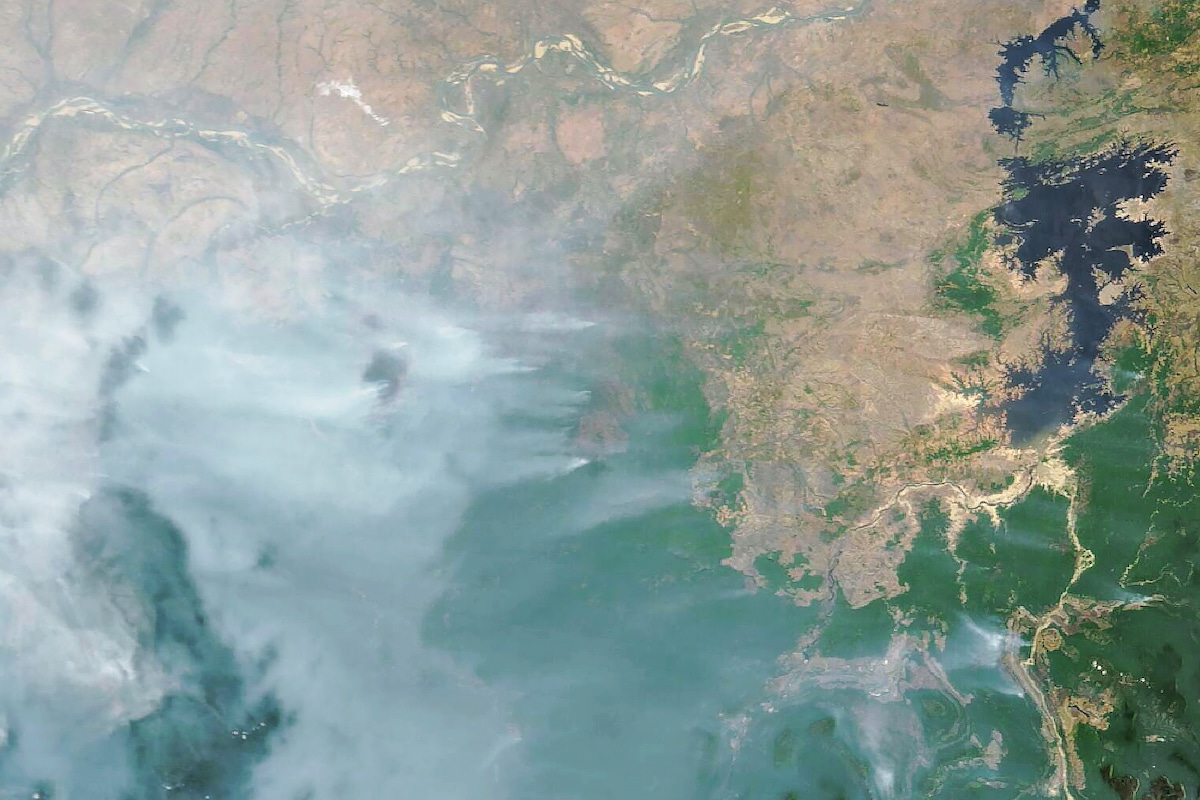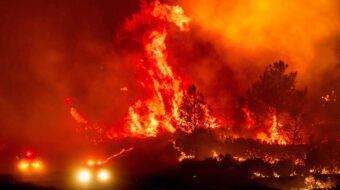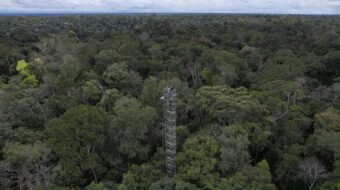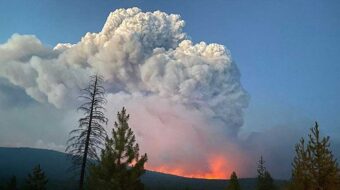
A record number of wildfires are burning in the Venezuelan Amazon, as a drought driven by climate change impacts the region.
More than 30,200 fires have been detected by satellites in the country from January to March, reported Reuters. Brazil’s Inpe research agency said it is the most for the period since records began in 1999.
The number includes fires in Venezuela’s grasslands, forests, and the Amazon.
“Venezuela’s dry season typically extends from December to March with heavy rains returning in April and May. The country’s fire season generally follows the same pattern, with the number of fires observed by satellites tending to rise in January, peak in March, and drop in May,” NASA Earth Observatory said. “And so it went for the 2024 burning season, with one key difference. In the preceding months, unusually warm and dry weather, potentially a consequence of global warming and shifting circulation and rainfall patterns associated with the ongoing El Niño, parched the country’s landscapes and primed them to burn.”
Land is frequently cleared for agriculture through the use of human-made fires, but researchers said South America’s low rainfall and high temperatures — in addition to an absence of prevention planning — have been causing the fires to spread out of control, Reuters reported.
“Everything is indicating we’re going to see other events of catastrophic fires — megafires that are huge in size and height,” said Manoela Machado, a University of Oxford fire researcher, as reported by Reuters.
The most severe fires in the region usually happen during August and September along the Brazilian Amazon’s southeast edge, where agricultural deforestation is the most intense.
“NASA’s MODIS (Moderate Resolution Imaging Spectroradiometer) sensor detected a record-breaking number of fires in Venezuela in the early part of the year,” NASA Earth Observatory said. “Fire counts in January 2024 and February 2024 were above 9,000 — higher than any other January or February since the beginning of the MODIS record in the early 2000s. In March 2024, the sensor detected more than 11,000 fires; the only other March that the sensor detected more was in 2003.”
According to Venezuela’s national park service, during Easter weekend, approximately 400 firefighters battled a significant fire that currently threatens Henri Pittier National Park — an oceanfront reserve that contains unique cloud forests, Reuters reported.
Further south, NASA data tracked 5,690 active fires in Venezuela’s Amazon as of late March — half the total number burning in all of the Amazon’s nine countries.
Just 10 to 25 percent of normal rainfall levels have fallen in the past 30 to 90 days in Venezuela and Brazil’s Roraima state, according to Michael Coe, tropics program director at Woodwell Climate Research Center, as reported by Reuters.
José Rafael Lozada, a retired professor and forestry engineer at Venezuela’s Universidad de Los Andes, said the region is caught in a “vicious cycle” with climate-change-fueled hot and dry conditions worsening fires, which then release greenhouse gases that make climate change worse.
“People burn the same [amount of fires], but the drought is more extreme. The vegetation is drier, the rains are scarce and we see the consequences: a small burn turns into a fire of great magnitude,” Lozada said, as Reuters reported.
This article was reposted from EcoWatch.
We hope you appreciated this article. At People’s World, we believe news and information should be free and accessible to all, but we need your help. Our journalism is free of corporate influence and paywalls because we are totally reader-supported. Only you, our readers and supporters, make this possible. If you enjoy reading People’s World and the stories we bring you, please support our work by donating or becoming a monthly sustainer today. Thank you!












Comments